
Success Stories
Made in Buch
Excellent basic and clinical research in biomedicine and world-class biotechnology are hallmarks of Campus Berlin-Buch. The objective is to translate scientific findings as rapidly as possible in order to develop new treatments and diagnostic methods.
"Made in Buch" stands for high quality and innovation in the life sciences.
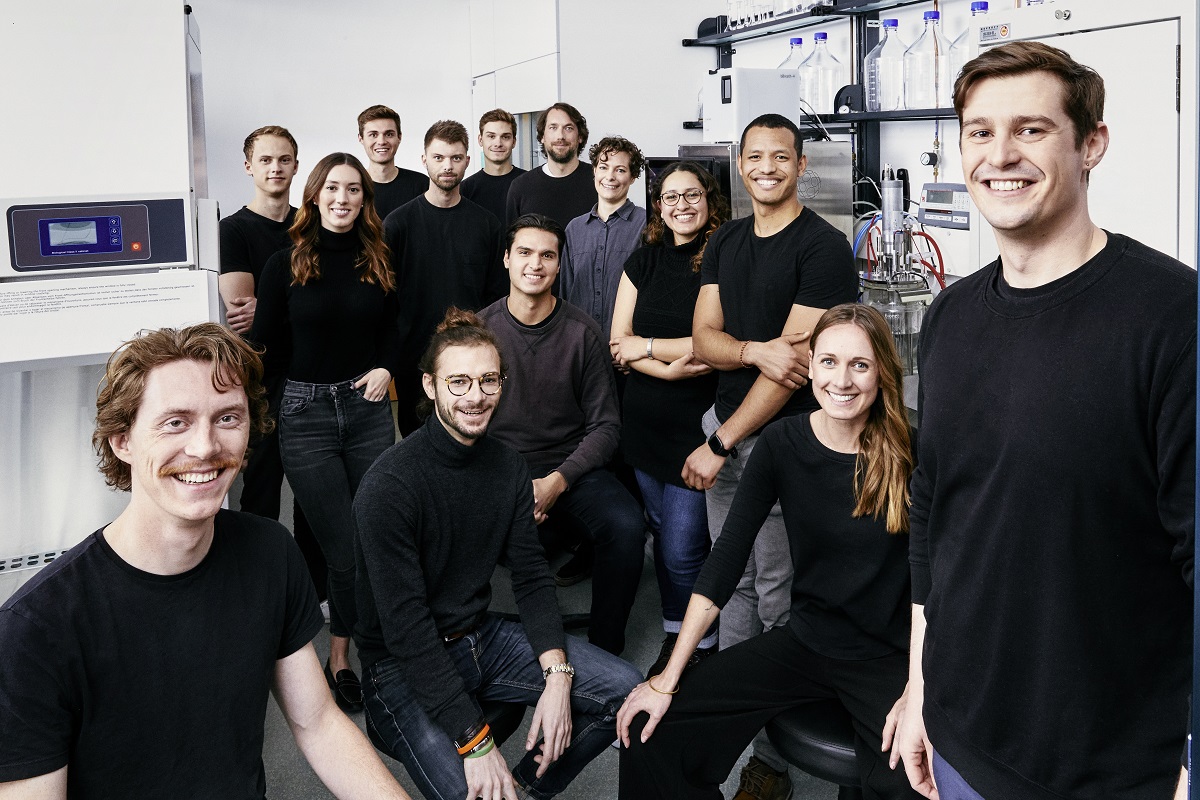
Cambrium GmbH
Materials of the future: A vegan collagen
The start-up Cambrium produces new materials using biotechnology. Its first product is a vegan collagen.
Cambrium was founded three years ago by Mitchell Duffy and Charly Cotton, with Merantix as the main investor. What is special about your start-up and what is its mission?
Cambrium brings together computer science and biology. We want to replace petroleum- or animal-based materials with more sustainable, biodegradable options. Using recombinant proteins, we create materials that are at least as efficient as their role models. Computer science helps us to sift through the "tree of life of biology" to identify the most promising protein combinations for our further work in the laboratory.
Our first product offers an alternative to conventional collagen, which is mainly obtained from cattle. For biotechnological production, we use yeast strains that we design to produce exactly the desired proteins. The yeasts grow on glycerol, a naturally occurring sugar alcohol, or comparable feedstuffs. Our technology uses less energy, land and water.
Your first product is the vegan collagen NovaColl™. How good is it and what is the response?
NovaColl (TM) is a micro-molecular and 100 percent skin-identical collagen. Due to its structure and small molecular size, it can be better absorbed by the different skin layers compared to conventional collagens.
Over the course of two years, we have examined millions of protein sequences for skin-active properties and indicators of efficacy, and developed and scaled up the manufacturing process. The efficacy and safety of NovaColl (TM) has been scientifically validated. In spring, we successfully presented NovaColl (TM) at industry trade fairs in Barcelona and New York.
CARTemis Therapeutics GmbH
Starting up with highly promising immunotherapies
Three is the magic number: Working with their labs at the Max Delbrück Center, Dr. Uta Höpken and Dr. Armin Rehm have developed three cell products for potential CAR T-cell therapies to treat cancer. Two of them will shortly enter their first human trials, while the third is at an advanced stage in the lab. To get their three candidate therapies to the point of regulatory approval, Höpken and Rehm have now founded CARTemis Therapeutics GmbH, a spin-off from the Max Delbrück Center. They are joined by Dr. Anthea Wirges and Dr. Mario Bunse, both research associates working with Höpken and Rehm. The two labs have played a crucial role in moving the CAR T-cell candidates through preclinical development. Wirges is the start-up’s CEO.
CAR T-cell therapies are often the last resort for patients with forms of leukemia, myeloma, or lymphoma that do not respond to conventional treatments. The new technique involves taking immune cells (T cells) from the patient and equipping them with a chimeric antigen receptor (CAR) in the laboratory. The CAR acts like a tiny antenna, scanning the body’s cells for specific features of cancer cells. Once the CAR T cells are introduced back into the patient’s body, they can detect and destroy cancer cells carrying the antigen that fits their new receptors.
Find out more about CARTemis Therapeutics GmbH on the Max Delbrück Center's website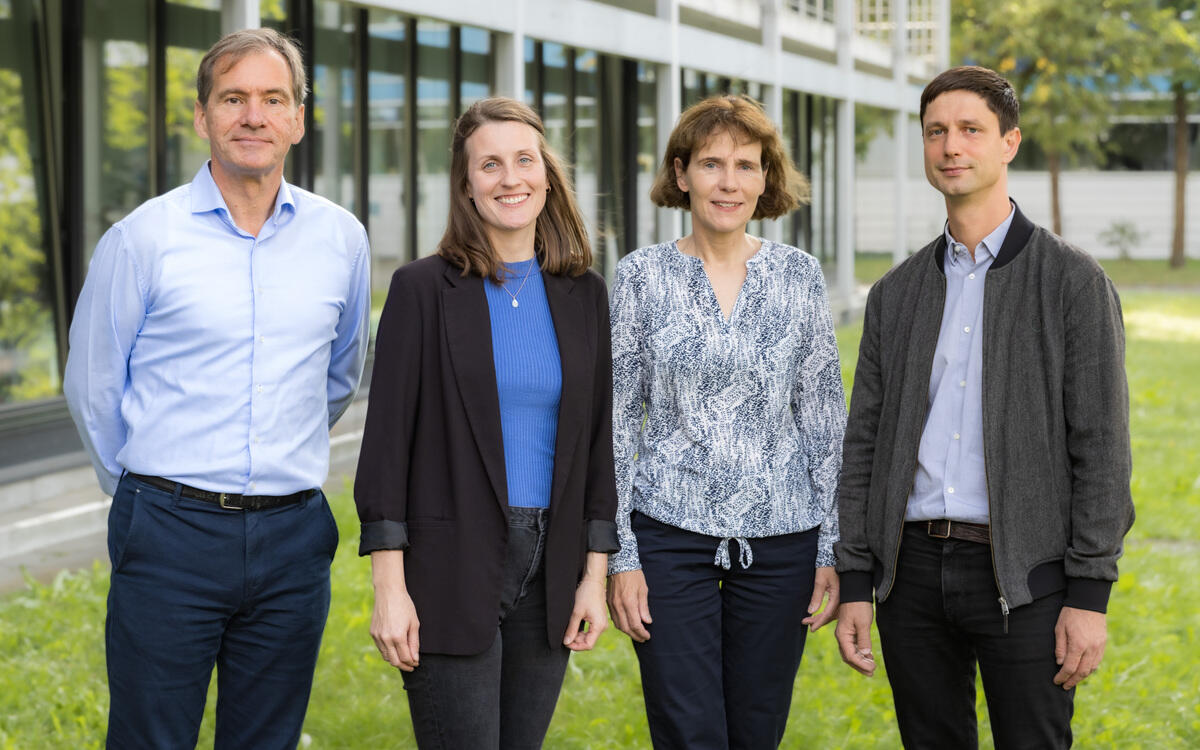
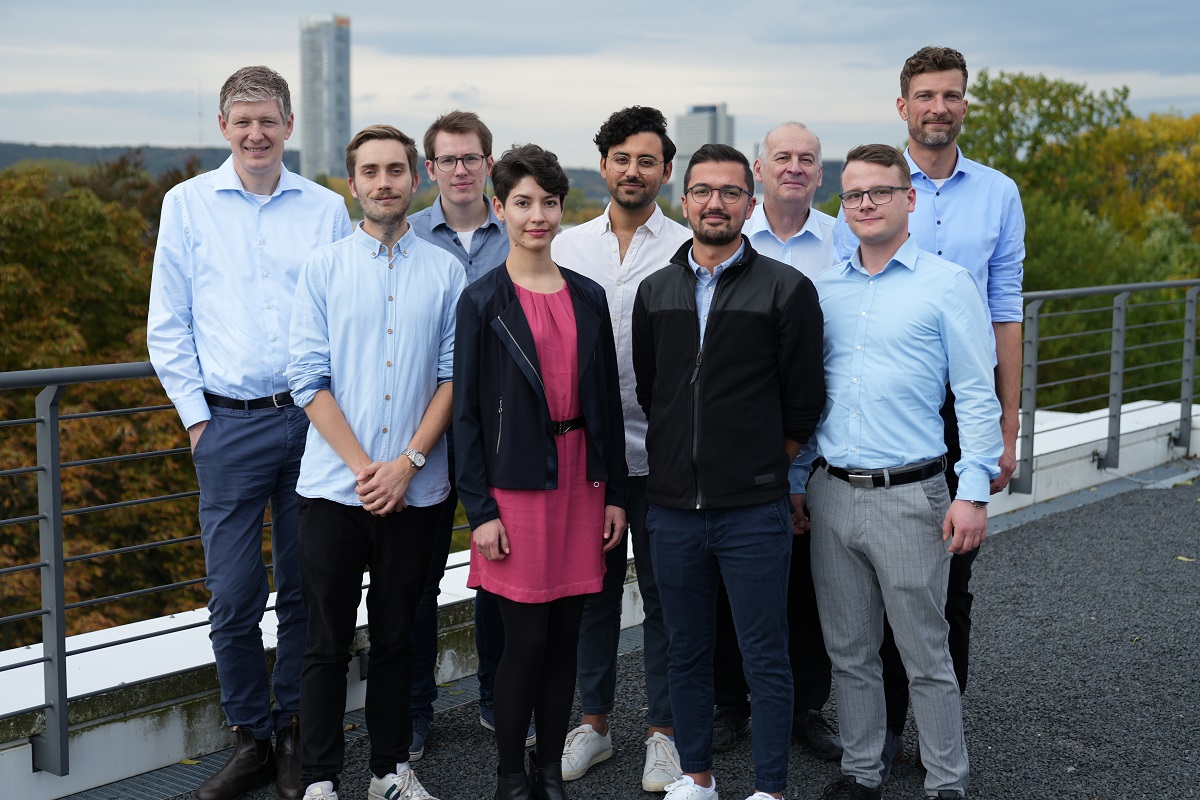
PROSION Therapeutics
Preventing cancer cells from migrating
Preventing cancer cells from migrating: PROSION Therapeutics is developing a completely new class of active substances for oncology. The approach of the start-up based on the Berlin-Buch campus and in Cologne makes it possible for the first time to prevent specific proline-mediated protein interactions within cells. These interactions are involved in many disease-relevant processes such as tumor metastasis, Alzheimer's or infectious diseases and were previously considered unaddressable. PROSION has already shown in preclinical studies on triple-negative breast cancer and pancreatic cancer that the technology significantly inhibits cancer progression.
PROSION is a spin-off of the Leibniz-Forschungsinstitut für Molekulare Pharmakologie (FMP) in Berlin and the University of Cologne.
Read the interview with co-founder and CEO Slim Chiha about the groundbreaking therapeutic innovation that PROSION is driving forward: https://lnkd.in/eEdkQAXW
The Interview was first published in buchinside 1/2023.CELLphenomics
Maya Niethard, MD and Christian Regenbrecht, PhD collaborate in research on sarcomas
Sarcomas comprise a relatively rare class of cancers, with about 4,000 new cases in Germany each year. Particularly young people are often affected. At Helios Hospital Berlin-Buch, around 600 patients with bone and soft tissue sarcomas are treated every year at the certified Sarcoma Center, which is one of the largest in Germany. A distinctive feature of the Center is its research collaboration on sarcomas with the start-up CELLphenomics. Specializing in 3D cell cultures, the biotech company on the Berlin-Buch campus seeks to make even more precisely tailored treatments available to each individual patient. This is made possible with tests on organoids that are derived from small pieces of the tumor tissue.
Read more about the Buch success story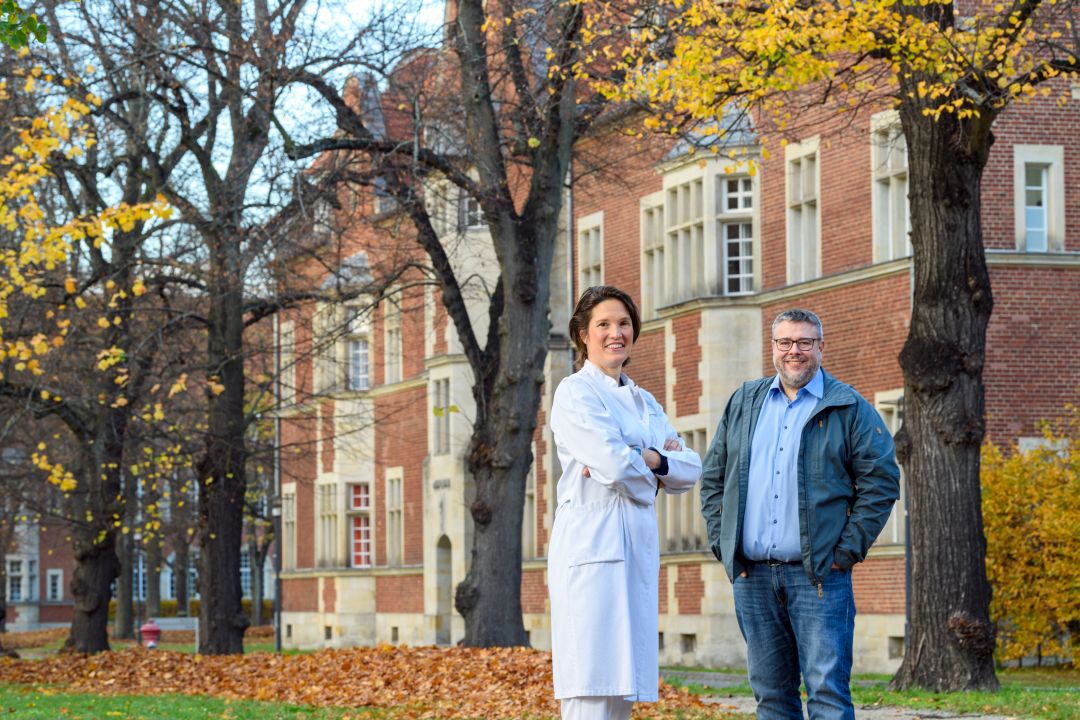
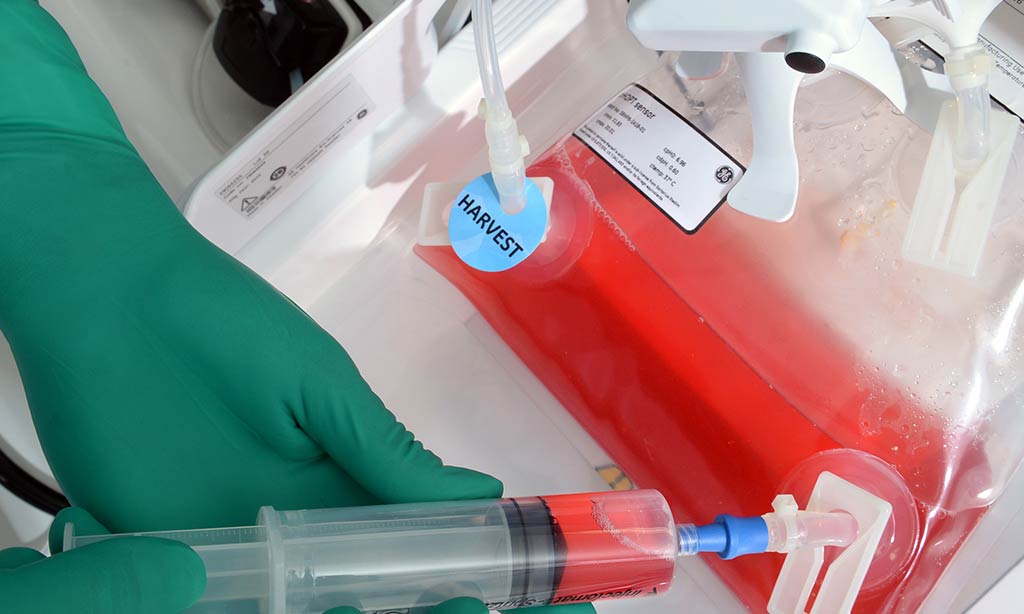
T-knife
Targeted detection of tumor cells
The human immune system is trained to distinguish between “self” and “non-self” and to destroy foreign structures. By means of anchor molecules (receptors) of T cells, it recognizes antigens of bacteria or viruses and thus can target and destroy such invaders. Cancer cells, however, are the body’s own cells, which is why the immune system does not mount an attack but instead tolerates them. A research team led by Professor Thomas Blankenstein has now succeeded in genetically altering human T cells so that their receptors can specifically track and destroy certain tumor cells. More than ten years of research have thus been crowned with success. The start-up T-knife is now developing one of the first T cell receptor gene therapies in Germany on the Berlin-Buch campus using this technology.
Lesen Sie mehr zur Bucher ErfolgsgeschichteOMEICOS Therapeutics
Effective Therapy for Primary Mitochondrial Diseases
Founded in 2013 as a spin-off of the Max Delbrück Center for Molecular Medicine (MDC), OMEICOS managed to take its drug candidate from early preclinical concept to clinical testing in just three years. OMT-28 is a small molecule with anti-inflammatory activity and a positive impact on mitochondria, the 'power plants' of cells. As part of OMEICOS' development activities in cardiovascular disease, OMT-28 has already demonstrated an excellent safety profile in two clinical trials involving a total of 162 subjects. The profound effects on key biomarkers of impaired metabolism and increased inflammation observed in these studies provide a promising scientific basis for translating the therapeutic concept into the field of primary mitochondrial diseases (PMD). A Phase 2a clinical trial in PMD patients, a rare disease, is evaluating the efficacy and safety of OMT-28.
The compound is a synthetic analog of a metabolite of omega-3 fatty acids, the biological relevance of which was discovered in years of systematic comparative research at MDC. The drug candidate OMT-28 could provide millions of patients with a safe and effective treatment option.
OMEICOS Therapeutics GmbH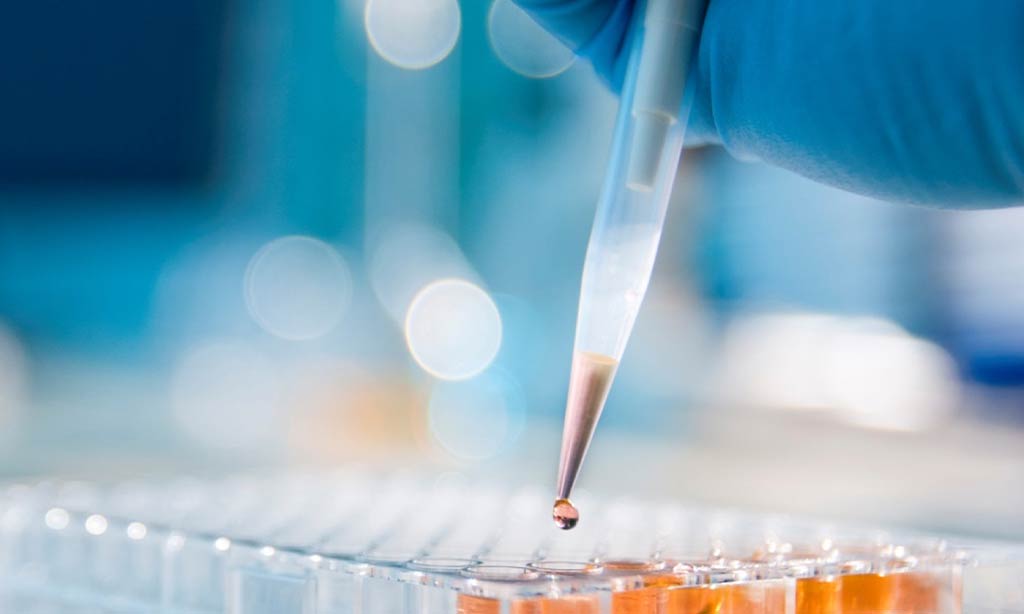
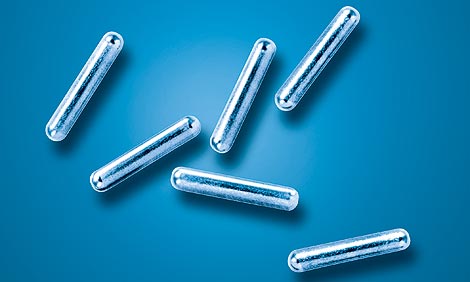
Eckert & Ziegler BEBIG: IsoSeed ®
Targeted, gentle treatment of prostate cancer
Targeted, gentle treatment of prostate cancer
Prostate cancer is one of the most common types of cancer in men. In Europe alone there are approximately 135,000 new cases annually. Brachytherapy has proved to be a highly effective and very gentle form of treatment for early-stage prostate cancer. Using a needle, millimeter-sized, low-level radioactive implants (seeds) are placed in a targeted area of the prostate. They provide optimal dose distribution in the irradiated tissue with minimal adverse effects on the surrounding organs.
LDR brachytherapy is highly effective, well tolerated, and is characterized by a short treatment time and a relatively fast physical recovery. LDR brachytherapy with medical products from Eckert & Ziegler BEBIG as IsoSeed® (individual seeds) or IsoCord® (seed chains) has been successfully performed in clinical practice for more than ten years.
Eckert & Ziegler BEBIG is the European leader in the field of permanent seed implantation and the world’s only provider of the complete range of brachytherapy products.
www.ezag.de
Events
all events29.01.2025, 18:00-
29.01.2025, 20:00
Neues Stadtquartier „Buch – Am Sandhaus“ Aufstellung des Bebauungsplans 3-95 beschlossen
20.02.2025, 17:00-
20.02.2025, 19:00
Talk im Cube: IP Strategies in Biotechnology
26.02.2025, 10:00-
28.02.2025, 18:00
JUGEND FORSCHT – 60. Regional-Wettbewerb